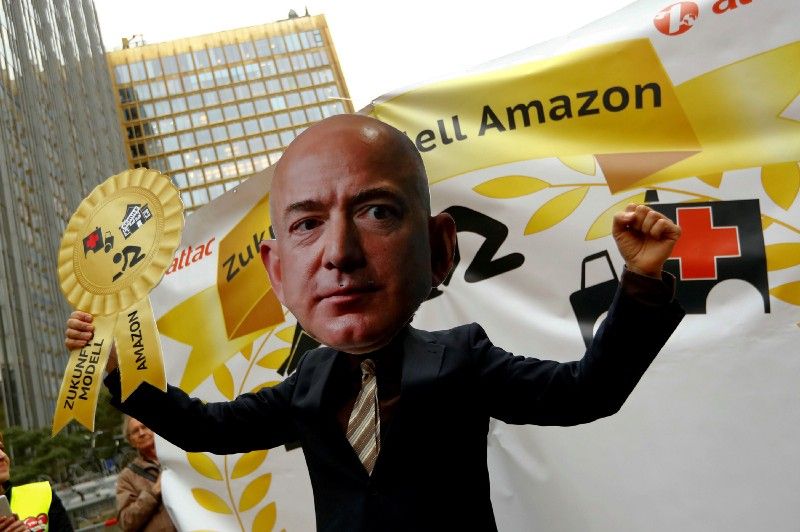May 30, 2018
Next, we head to Silicon Valley, where US tech giants face a growing backlash over their collaboration with governments on artificial intelligence. Consider the following:
- Last week, a coalition of activists led by the American Civil Liberties Union wrote to Amazon founder Jeff Bezos demanding that the company stop selling its advanced image recognition software to law enforcement agencies. They argued that it handed “dangerous surveillance powers directly to the government,” and that the technology would inevitably be abused.
- Last month, the New York Times reported that a few thousand Google employees had signed a petition demanding that the company stop participating in a Pentagon project to develop advanced image recognition, arguing that it could end up being used in drone strikes. A few dozen staffers have reportedly resigned over the issue.
There are three groups that can apply serious political pressure to tech companies: governments, through regulation; the public (subscribers and shareholders), by withholding their business; and employees, by withholding their labor. Grassroots activism around AI has the potential to energize all three constituencies.
But will it be enough to make a difference? One view holds that, unlike most companies that sell to governments, Amazon, Google and other Silicon Valley giants have consumer-facing businesses vulnerable to public pressure. The other is skeptical that many of us will stop Googling or Amazoning over this, or that large numbers of their employees will walk away from the sizeable salaries, benefits, and stock options they offer. It’ll take regulation to stop tech companies from selling AI to governments, and that’s not something any Congress worried about appearing soft on crime or terrorism is likely to embrace.
We’re curious to know what Signal readers think: Can grassroots pressure act as an effective brake on controversial uses of AI? Send us your thoughts.
More For You
Bad Bunny during the Super Bowl LX halftime show press conference at Moscone Center.
Kirby Lee-Imagn Images
100 million: The number of people expected to watch the Super Bowl halftime performance with Bad Bunny, the Puerto Rican superstar and newly minted Album of the Year winner at the Grammys.
Most Popular
Think you know what's going on around the world? Here's your chance to prove it.
- YouTube
An imminent US airstrike on iran is not only possible, it's probable.
Americans are moving less — and renting more. Cooling migration and rising vacancy rates, especially across the Sunbelt, have flattened rent growth and given renters new leverage. For many lower-income households, that relief is beginning to show up in discretionary spending. Explore what's changing in US housing by subscribing to Bank of America Institute.
© 2025 GZERO Media. All Rights Reserved | A Eurasia Group media company.
